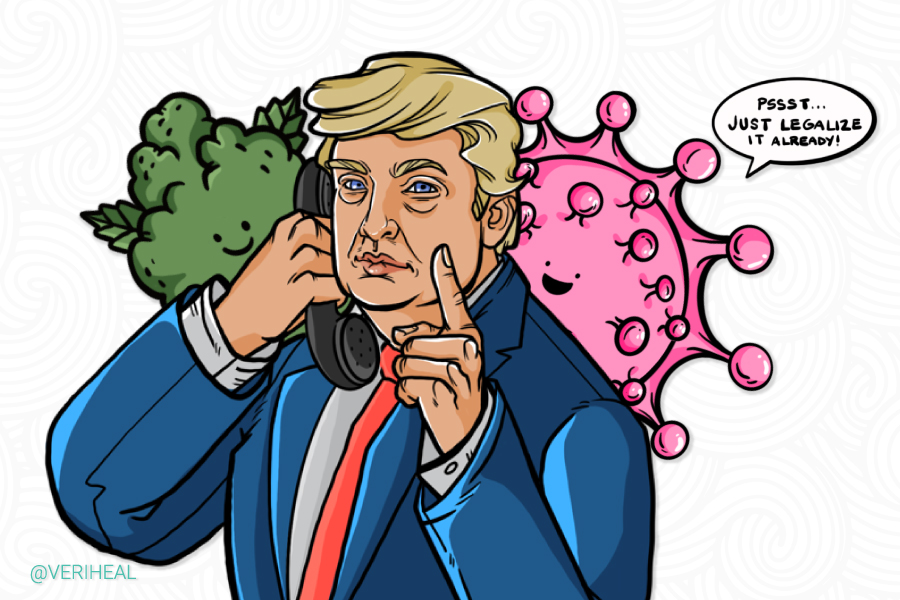Since the beginning of the COVID-19 global pandemic, the cannabis industry has seen unprecedented changes in such uncertain times. In the early stages of global health response, states with legal cannabis in the US saw legislators, medical patients, and industry leaders address cannabis access with a quickness. In the first few weeks of community transitions, to comply with most state’s “Safer at home” Orders – many governors addressed cannabis directly.
Cannabis Is Essential But Not Federally Legal
Nearly all states that have lawful access to medical cannabis have deemed cannabis sales an essential operating business during these times. With medical cannabis patients elated at the ability to lawfully access their medicine, so-called recreational users were left out of the loop or at least faced significant restrictions in a handful of states. While not all users have convenient access to retail cannabis, as each state is different, this still infantile industry faced significant issues due to the novel coronavirus.
Taking The Fast Track To Consumers
It seems that this unexpected virus has hit the fast-forward button on cannabis – with some areas now allowing curbside pickup, online orders, and even home delivery. Unfortunately, many states have been forced to halt legalization efforts due to social distancing rules and legislative sessions being shut down. While, cannabis legislation efforts may be slowed right now, yet predictably the legalization push and votes on further allowances will be ramping up as soon as they can.
Why You Should Get Your Medical Marijuana Card
Veriheal has satisfied millions of patients nationwide by giving them access to these benefits
- Larger purchase limits
- Peace of mind
- Enhanced legal protection
- Access to higher potency strains
- Save up to 25% on cannabis purchases
- Skip the line at the dispensary
Cannabis Legalization Efforts Will Accelerate
Looking ahead, some experts believe legalization could accelerate once the coronavirus is contained. Cannabis CEOs say the chances for federal cannabis legalization will dramatically increase in the wake of the coronavirus pandemic, after several states declared dispensaries essential businesses, allowing them to remain open during stay-at-home orders aimed at halting the spread of the virus. Eight states deemed recreational cannabis essential during Covid-19 shutdowns. Federal legalization of cannabis would provide economic stimulus for local jurisdictions in states through tax revenue and job creation during the Covid-19 recovery.
The Obvious Green Solution
Life clearly will change post-virus, and one big difference will be that state and local governments are going to encounter large unanticipated tax receipt shortages. A simple and effective solution for states and cities to help cover their huge budget shortfalls after the COVID-19 pandemic subsides: legalize recreational sales of cannabis. The economic impact of this virus may be enough for some states, such as New York, to finally get enough votes to pass such legislation.
“One of the programs by the federal government right after the Great Depression was to focus on tax revenue generation,” said dispensary Curaleaf Executive Chairman Boris Jordan. “They lifted prohibition on alcohol and therefore started to tax it — and it became a major revenue generator for both the federal and the local governments around the country.”
The Future of Cannabis Legalization
Three states – New Jersey, Arizona, and South Dakota – are expected to have adult-use legalization on the November ballot. Three others – New York, Connecticut, and Rhode island – have bills pending that could legalize adult-use cannabis through the legislature. It is difficult to speak on where the US is on federal legalization or de-scheduling of cannabis as so many bills have been introduced over the last several decades with not one getting to vote – perhaps a global pandemic is just what cannabis needed to break the seams of acceptance.
Author, Share & Comments








